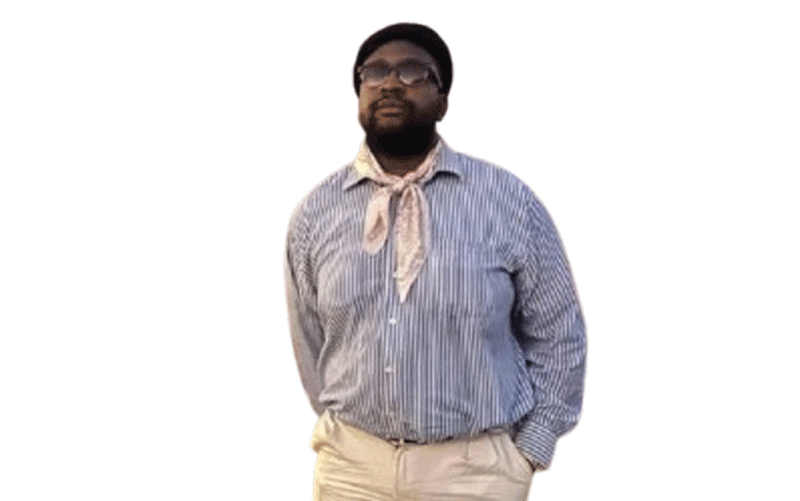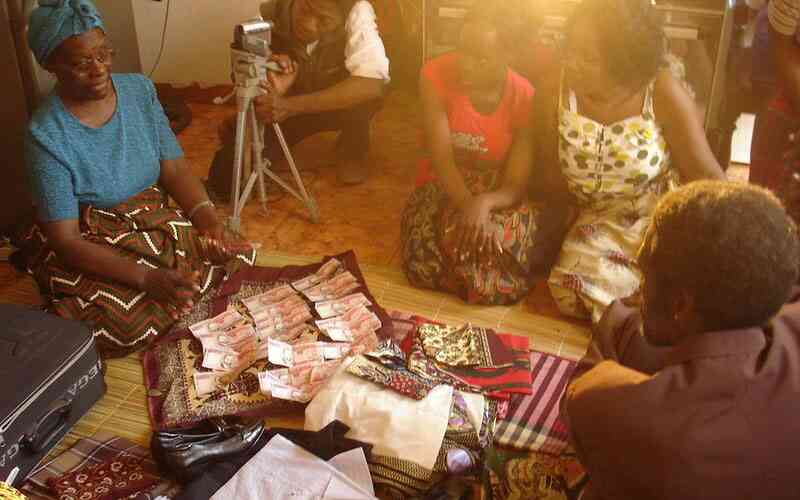
Jabu Mudzvova is carving out a bold new space in African cinema with films that linger long after the screen fades to black.
The Zimbabwean director, writer and visual storyteller brings a unique perspective to his craft — one shaped by his legal training at Staffordshire University and sharpened through his work with The Authors, a rising Zimbabwean art collective comprising various multi-disciplinary artists, including fine art photographer Simphiwe Moyo, Takudzwa Nyambi, writer/editor for Rolling Stone Africa representing Southern Africa, musician, Mutsa Mungoshi, photographer Matt Matura, Sungano Katsumbe and IP expert Takura Takavarasha.
Whether navigating themes of memory, grief, or youth identity, Mudzvova brings a bold and unflinching honesty to the screen.
“It’s our job as screenwriters, directors, and producers to ensure we are making quality content that can platform our talent," he told Standard Style, emphasising the collaborative nature of his work.
Mudzvova first made waves with his breakout short film A Few Dollars More, which earned a National Arts Merit Awards (Nama) nomination for Outstanding Screen Production and was selected for the prestigious 2024 African Indigenous Language Film Festival.
But it's his recent work Residue that has truly announced his arrival on the international stage.
The haunting short has become a festival darling, collecting accolades across continents — from Charmaine Mujeri's shared Best Actress win where she tied with a Polish actress Magdalena Maścianica at the Brazil New Visions Film Festival to Mudzvova's own Best Director honour at Cine Paris. The film was also named as a semi-finalist at the Stockholm City Film Festival.
These awards speak volumes about his ability to craft stories that are deeply rooted in Zimbabwean soil yet resonate universally.
- Mudzvova’s ‘Residue’ wins big
Keep Reading
“The fact that the Best Actress award was tied for the first time at the festival… that’s a statement, isn’t it?" Mudzvova reflected.
“Charmaine is a phenomenal actress, it shows from her nomination at The Africa Academy Awards, that's the highest level on the continent, and through our producers and enticing script we managed to sign her on to take this character who seems to be truly built for her to play, it was an honour to work with her, and in being tied with Magdalena who months prior had won the Mastercard Rising Star Award at the International Festival of Independent Cinema.”
Mudzvova reflects on what these international accolades mean for African cinema.
Competing with bigger productions and more established names, he believes, builds the kind of confidence that lies at the heart of filmmaking.
There's a growing global appetite for African stories, he observes, and this recognition validates the meticulous approach his team took in casting and production.
When an actress of Mujeri's calibre chose to work with a relatively new director, it spoke volumes about the strength of the script and shared creative vision.
For Mudzvova, this experience reaffirmed the fundamental responsibility filmmakers have — to create quality content that properly showcases their talent, both behind and in front of the camera.
"If we can compete with bigger productions, more established names, it brings confidence — which is essentially what filmmaking is about."
“It's a great honour, the highest honour really outside of winning best picture, it's kind of the highest stamp approval for you isolated particularly away from the production as a whole. Other directors saw the work and saw it fit to honour me. It's a high point, and so early in my career, I can say I have a best director win. Now it's just about maintaining and making sure our processes improve, because ultimately the process is what gets you recognition, you don't make a film so you can get a particular award.”
Beyond directing, Mudzvova is also known for his work in short-form storytelling, experimental formats, and 35mm photography—mediums that further deepen his narrative and visual approach. His work has screened at notable festivals, including the Zimbabwe International Film Festival, Stockholm City Film Festival, and Urban Music People Festival in Malawi. Of his Cine Paris win, he says: "It’s the highest stamp of approval… Now it’s about maintaining and improving our processes.
Talent isn’t enough; work ethic needs to match the ambition," he said.
Cineparis is an international film festival taking place in Paris reuniting artists, creatives, and filmmakers, focusing on discovering new talents and works. A selection of monthly participants and winners are presented at the live screenings, with a major annual event in Paris.











